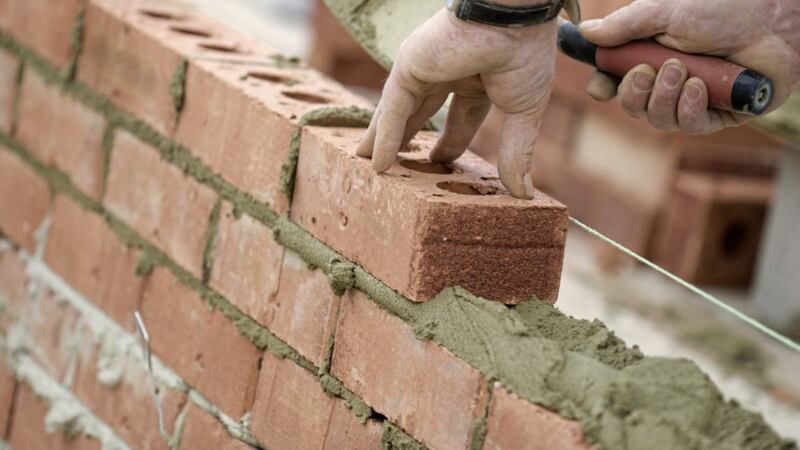EVEN if the Stormont Executive came into billions of pounds of new money, the north is "incapable of moving on major new infrastructure projects" because of "acute construction skills shortages".
That's according to findings in the latest quarterly survey by industry body the Royal Institution of Chartered Surveyors (Rics) and legal firm Tughans, which gathered its data in mid-December when there was increasing anticipation that a political deal would be done.
It found that construction workloads continued to fall at the end of last year, marking a fifth consecutive quarter of contraction, and balances for all six monitored sectors were either flat or in negative territory, with infrastructure experiencing the sharpest declines in quarter four.
Worryingly, the data also pointed to "severe labour shortages", which casts some doubt on the industry’s ability to move forward quickly with a range of major projects if they should come on stream soon.
Two thirds (65 per cent) of local respondents report a shortage of quantity surveyors (more than any other UK region and well above the UK average of 51 per cent) while 63 per cent are experiencing a shortage of other construction professionals, and 53 per cent are short of bricklayers.
The north's economy is the closest it has ever been to full employment, with the jobless rate a mere 2.3 per cent, and companies which are already finding it hard to hire the right workers may find it even more difficult once the UK leaves the EU and curbs are placed on untrained labour.
Rics regional spokesman Jim Sammon said: “The New Decade New Approach deal offers considerable expectation that significant investment in infrastructure and capital projects will be forthcoming, which is essential for economic development and our competitiveness.
“But a key concern remains the shortage of skills in the sector - a challenge that needs to be addressed through a coordinated approach involving industry, government, the education sector and bodies like Rics.
“Higher level apprenticeships, for instance, can certainly contribute to finding a solution, and it is important employers play their part in enabling that to happen,” he added.
Tughans senior partner Michael McCord said: “The survey shows that 2019 ended as it began, with construction workloads falling and surveyors reporting that the absence of decision-making at Stormont was impacting significantly on the sector.
“But there is now growing positivity around prospects for workloads in 2020, albeit with concerns around Brexit and skills remain.
“While the quantity of work being done will fluctuate, our experience is that local construction businesses continue to deliver an outstanding quality of work.”
Headline Northern Ireland findings of the latest survey are as follows (all figures are the net balance of respondents):
• The net balance of workloads/activity for Q4 was -9 per cent, meaning that 9 per cent more respondents reported a fall in workloads in Q4 than reported a rise
• The balance for public housing workloads was 0 per cent, suggesting that activity in this sub-sector was flat
• Private housing workloads fell in Q4 according to the survey, with a net balance of -11 percent, breaking a sustained period of positive net balances
• The balance for private commercial activity was negative for the fourth quarter in succession at -19 per cent
• Private industrial activity remains in decline for the seventh quarter in succession with a net balance of -10 percent
• The infrastructure workloads balance remained firmly in negative territory at -27 per cent
• Looking forward, Northern Ireland workload projections for the 12-months ahead continue to lag all other UK regions, but have turned positive with a net balance of +10 per cent expecting workloads to be higher in a year’s time
• Expectations for employment also edged upwards, with a net balance of +19 per cent of Northern Ireland respondents expecting employment levels to be higher in 12 months








